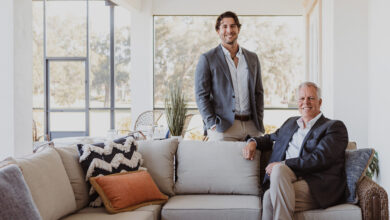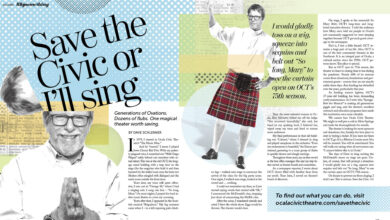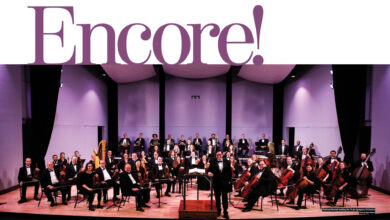In a world full of happy couples saying their “I dos,” there are those living behind the veil in a lifestyle considered taboo.
STORY BY KELLI FUQUA HART
PHOTOGRAPHY BY CHRIS REDD
Just Don’t Marry One. I will never forget being presented this book after revealing to my family that I was in an interracial relationship. One that ultimately, despite author George A. Yancey’s cautions, resulted in marriage.
Forty seven years ago, a white woman marrying a black man was against the law. In 2001, in the deep south, were I was living, it was simply taboo. I can recall being shunned and disowned by family members and completely cut off by friends. In public, we saw the scowls and glares we would get from some of those around us. The hate and mistreatment was real.
I had become the target of stereotypes and jokes and insults that left scars that I still carry with me today, some 13 years later – and why? What crime or sin had I committed, simply by loving another human being? Who was I hurting? How could society be so mean? And who gave anyone the right?
Society has adopted their own ideas about what marriage looks like, which is traditionally a man and woman falling in love, followed by the rhyme we all grew up singing – then comes marriage and then comes the baby in the baby carriage. And usually, this man and woman are similar in age, race and religion. Anything outside of this is considered taboo. But why?
If you were asked to break down the true meaning of marriage, what marriage really is, what it is based on and its purpose, how would you find your answer? Would you base it on how the government defines it? Is it based on your particular religious beliefs? Or is it something you simply don’t recognize altogether? And why does society spend so much time fighting for or against who and how other people marry?
For some couples, marriage comes with sacrifice, a fight or a stigma. For some, it doesn’t come at all.
Donna Davis and Norma Anderson have been together for eight years. Both women have had previous marriages, both to men, that didn’t survive – marriages that never felt right or added up. Both Davis and Anderson found themselves having to make some pretty heavy decisions about themselves, their families and their futures.
Anderson grew up in Ocala, where being gay has certainly come with some stigma in the past. Davis grew up in Jamaica, where being gay is so frowned upon that most live in secrecy or have to endure things as serious as death threats. However, Davis found her way to the United States and ultimately to Ocala where she met “the love of her life.”
Still married, Davis was working at a local gay bar as a karaoke DJ. One random night, Anderson paid the bar a visit and belted out some country music lyrics that blew Davis away. Very quickly, Davis knew she had found her soulmate. Davis ended her marriage, came out as a gay woman and has been confidentially happy with Anderson ever since.
Likewise, Anderson was divorced, but had already come out and had her dating experiences. According to her, the encounter with Davis “was perfect.” The couple describes their relationship as “flawless, seamless and full of respect.”
A year into their lives together, Davis, the current choir director at Oakbrook Center for Spiritual Living, and Anderson, the assistant director there, decided to be married. They wanted to bond their love and their commitment for one another. They wanted to show their children that they are a family, devoted to each other and in it for the long haul.
However, despite their genuine love for one another, despite their church and family’s support and despite the fact that they are deeply in love with one another, opting to live a life like any other married couple, the state of Florida won’t allow it. They had to settle for a non-legal celebration that the state will not recognize.
The couple doesn’t let this obstacle keep them from living in matrimony. “We are always treated wonderfully, because we treat others wonderfully,” states Davis. The couple doesn’t carry a chip on their shoulder. They simply continue to live happily and provide a happy, healthy home for their children.
“We know we are just like everybody else,” says Anderson. “We act like everybody else and are therefore treated like everybody else.”
Much like gay and lesbian couples, people who choose to date outside of their race are sometimes faced with having to make a choice. And sometimes that choice comes with a loss one way or another. When I made the choice to bring home my black suitor, I had to make a choice – was it going to be him or some of the people I loved the most in this world?
Ocala native Rachelle P. understands what it feels like to have to choose. When white Rachelle fell in love with a black man, she couldn’t shout it from the rooftops or post it all over Facebook like most girls in love do. She had to keep every aspect of her new love secret, for fear of what the consequences would be.
Fast forward six years, when this love turned into a marriage proposal. Rachelle was ecstatic. She would be spending forever with the man she adored more than anything in this world. Sadly, Rachelle wasn’t able to ring mom and dad with the joyful news. She couldn’t share photos of her perfect diamond. Before she was able to celebrate, she knew she’d have to tell her family of the secret she had been holding onto for so many years.
Scared, Rachelle sat her mother, father and stepmother down to reveal to them parts of her past and plans for her future with her fiance. Rachelle remembers feeling literally sick to her stomach as she simply said to them, “I hope that you don’t hate me, but I want you all to know that I am in love with and getting married to a black man.”
Rachelle described their faces as ones of people who had just witnessed a horrific accident. Her mother burst into tears. Her father got up and walked over to a window and with his back turned to Rachelle, he spoke slowly and said, “How could you do this to us? No, we don’t hate you, we just want nothing more to do with you.”
Rachelle was disowned by her family – her family! The memories that surrounded her engagement and later her wedding and the birth of her child were not one of fairytales, as they should be. She didn’t have the traditional white wedding because she couldn’t emotionally handle the fact that her father wouldn’t be walking her down the aisle or that her mother wouldn’t be there to pin her hair. There were no bridal showers or baby showers for Rachelle. When she gave birth to her daughter, her family wasn’t there.
It has been 14 years since Rachelle’s family has spoken to her. Other than a few conversations where they tried to convince her that what she was doing was “disgusting,” “embarrassing” and “shameful,” Rachelle’s family has completely shunned her from their lives.
“My husband is a hard worker. He is a loving, God-fearing man. He respects me and is committed to me and our daughter,” explains Rachelle. “But, his skin is black and I guess to people like them, the other stuff just doesn’t matter.”
Olivia Sadik met her husband, Khalid, in 2003. Never did she ever imagine she’d, a Christian girl in small Ocala, fall in love with a Muslim man. Initially, she had her own reservations, based solely off of their cultural and religious differences. However, with an open mind, Olivia gave love a chance.
Yes, there were some skeptical friends and family members. Yes, she understood the challenges and obstacles she may be faced with, especially living in such a small town. But Olivia believed love had “no color, cultural or religious barriers.”
Her open-mindedness allowed her to experience a love like none other. As a result, Olivia and Khalid share a magical bond that has grown into a family of three. “I am amazed how anyone can look at the love we share for each other, our beautiful daughter who is a product of our love, and see anything wrong with it,” states Olivia.
For some individuals, the “error of their ways” isn’t about a difference in race or culture, but in the number of years that separate their birthday from their spouse’s. Being a few years younger, maybe even older, is typically acceptable in society. But there comes a point when some “lucky number” separates what is and isn’t acceptable.
Mollie Jackson-Coates is 25 years old. Her husband, Randall, is 65, just one year older than Mollie’s own father.
At 21 years old, Mollie was in college and started working on an Ocala horse farm owned by Mr. Randall Coates. Coates was a mentor and confidant to Mollie, nothing more. However, the more the two spent time together, the more they realized there was something more – a spark, that eventually turned to romance.
“I think we both felt it,” explains Mollie. “I think we just both questioned how the other person would feel.”
Very quickly, their attraction grew and budded into a relationship. Almost immediately, they moved in together and have been inseparable ever since. The 40-year age gap made no difference to Mollie and Randall, but it certainly made a difference to some of the people in their lives.
The couple lost friends. People who were near and dear to them. Mollie was accused of being a gold-digger, because how could anyone as young as her possibly love such an older man? What could they possibly have in common? What could they possibly talk about?
Randall was called a “pervert” and “cradle-robber,” simply over the fact he fell in love with a much younger woman – a woman he respects and faithfully serves.
And although those who truly love both Mollie and Randall have rallied for them and support their unconventional love, there is still a society that sees the two of them together and asks, “Is it just you and your dad?” or “Are you here with your daughter?” Something the two of them chuckle at now, but still proves the point that society has a bad habit of assuming.
And just as society has placed “should nots” on their list of marriage-must-dos, there is also this rule of “shoulds” when it comes to shacking up.
It has become more and more common for couples to live together outside of and before getting married. It may have to do with the financial benefits or maybe the convenience of having one’s lover close? For some couples, it’s a way to take a step towards commitment or have a practice run at marriage. Typically, however, the ultimate goal is for “shacking” to end in some holy matrimony of marriage.
Ocala’s Brook Mckelvey and Anthony Torri have felt society’s pressure when it comes to living together and having a family, because they have made up their mind to live like any other married couple, minus the actually being married part.
Mckelvey and Torri have both tried the being married thing. It’s an experience neither wish to endure again, so as a couple they are permanently committed to being untraditionally committed – and it’s working.
According to an online Bloomberg report, “Cohabitation is a common part of family formation in the United States, serving as a step towards marriage.” But, what if the couple is not at all interested in marriage? What if the goal is to never get married? Suddenly, the question becomes, “Why?”
For some, the idea of cohabitation falls under the “Thou shalt nots” of the Bible. Many religions frown upon cohabitation, believing mates should be married before making a home. Other individuals feel that it’s just not “normal.” Who in their right mind wouldn’t want to one day be married?
To this day, my grandmother will tell young ladies, “He isn’t gonna buy the cow if he can get the milk for free.” In other words, don’t play house if you ever want him to make it a home. And according to research, my grandmother is on to something. Statistics support that couples who live together before they marry have a divorce rate that is 50 percent higher than those who don’t.
Mckelvey and Torri don’t have to worry about these statistics. The couple agrees that a signed document and a few vows don’t guarantee anything or any type of success. They simply don’t care about what’s conventional or what society thinks they should do in their relationship. What they do works for them. It works for their blended family.
“Marriage is a piece of paper,” explains Mckelvey. “It doesn’t make you any more faithful, committed or in love.” The relationship this couple shares may confuse society or may go against what people consider the “norm,” but it’s the perfect dynamic for them and that’s what matters most.
So, back to my earlier question, “If you were asked to break down the true meaning of marriage, what marriage really is, what it is based on and its purpose, how would you find your answer?”
It took some time for my family to come around. Their actions and decisions aren’t something they are proud of, but it’s all a part of our process. Sometimes it takes being presented with an experience or challenge to start the process of growth. Sometimes, a mind has to have a reason to be opened. It is easy to oppose an idea when its in theory, but when it presents itself in a relative way, it forces us to think. Due in part to our strong Christian belief, my family turned to the Word to find their answers.
In theory, my interracial relationship was “wrong” because of what society might think, because of what may happen if we had a child and because of the stereotypes that my family carried for absolutely no reason other than those before them carried them too. But, when there was a face and heart behind the color, a product of love that my family couldn’t help but immediately love unconditionally and a realization that their beliefs and prejudices came from a place of pure ignorance and fear, not directly from God’s Word, we healed – an entire family was changed.
Change happens when people let down their prejudices, let go of assumptions, rid themselves of any biases or pretenses and allow what may very well be taboo, to have some chance at saying, “I do.”






